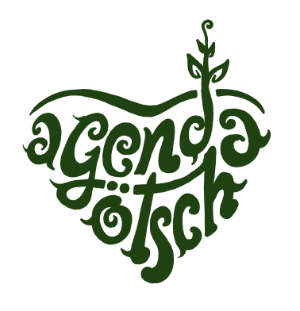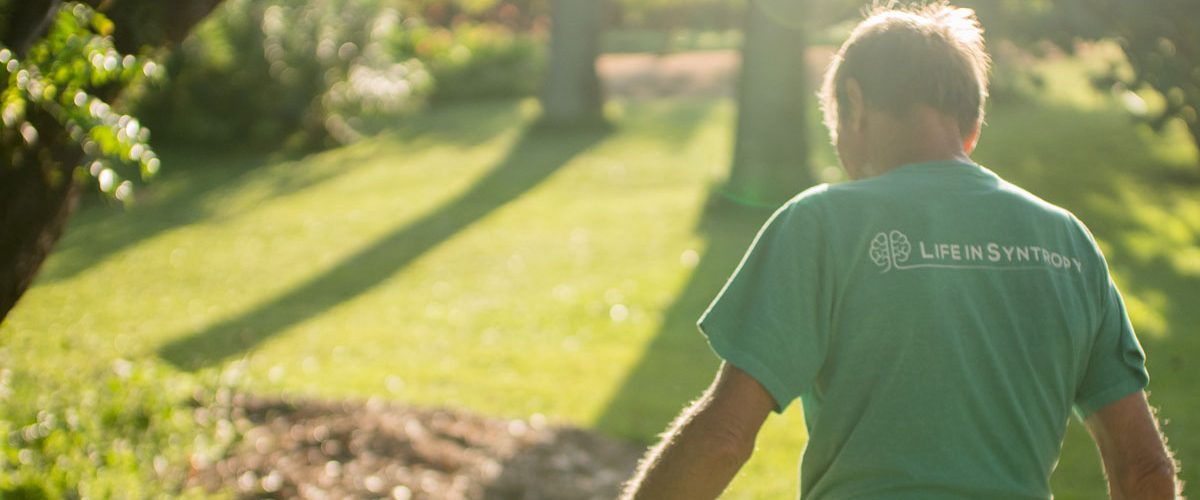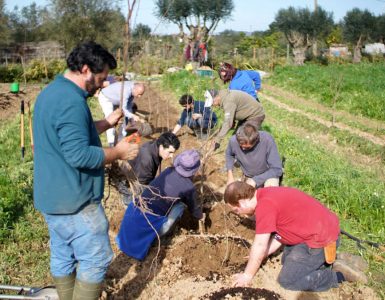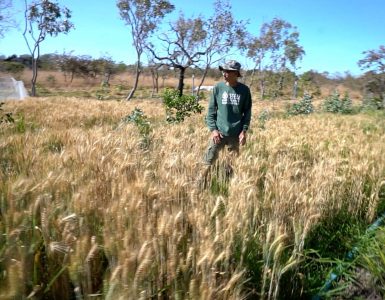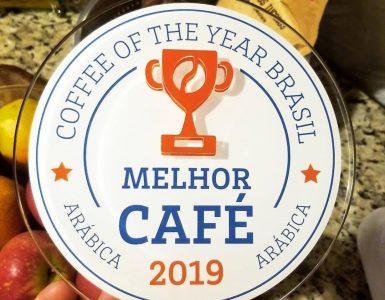If you have already attended a lecture, participated in a workshop, or if you had the opportunity to spend some time with the creator of Syntropic Farming, the chances that you’ve heard him saying these sentences are huge! We decided to do a quick list of some key phrases by Ernst Götsch because we think they deserve to be highlighted (and also because we want to have some fun!)
1. “All intra and interspecific relations are based on unconditional love and cooperation”
I bet you’ve doubted it and pictured those crazy images of wild nature, didn’t you? Yes, but even the predator-prey relationship can be understood as a mechanism to optimize and balance the resources of an ecosystem. The famous case of the Yellowstone wolves is a good example of this.
2. “All species – the existing ones, those that have already occurred and those that will appear – are equipped to perform their tasks, driven by inner pleasure”
Our opposing thumb is capable of much more than only typing fast on cellphones, believe me! Warning: don’t understand internal pleasure as hedonism and use it as an excuse for a little bump here and there. There is pleasure in serving a greater good than your individual well-being, don’t you think?
3. “ The laws (of nature) are given, it isn’t up to us to create or modify any of them. We need to act in a beneficial way for all participants, for all the affected ones, in order to be considered useful and welcomed beings in the system”
Working with nature and not against nature is a not an imposition. It is simply our best option! Nature does not need us. We depend in it. Otherwise, what happens is exactly the situation described in the next key phrase.
4 – Acting in disharmony induces changes in the system which act precisely in the sense of making inconvenient the presence of the causer of this disharmony. The being is expelled, it loses the freedom of choice.”
Think about the effects of climatic changes driven by the interference of human activities. Indeed they are not at all inviting for the permanence of our species on the planet.
5. “I always seek to create agroecosystems as close as possible to the natural and original systems of the sites where I work, both in their form and in their function and dynamics”
It is 4 billion years of evolution of life on the planet. It does not seem risky to trust this “technology.” All processes, forms and strategies have been tested and improved for a long time!
6. “We are not the smart ones, we are part of a intelligent system. I am not the owner, nor the boss or manager. I am an endobiont of the macroorganism”
Recalling biology classes, endobiont comes from the Greek “ENDO” which means “inside” and “BIOS” means “life”. That is, “who lives within” in a mutual relationship, without causing harm. Imagine how much difference it would make if we understand and act like endobionts of nature.
7. “Exposed soil is an open wound”
“Be generrrrous, sir” says Ernest when it comes to covering the soil with organic matter. It’s the organic matter that will guarantee the best conditions for the development of the soil’s microflora and microfauna. These organisms are closely related to the availability of the necessary nutrients for plants and for structuring the soil.
8. “There is no such thing as plagues. They’re agents who optimize life processes. The only plague I’m aware of in my garden is myself”
The consequences of this change of perspective is incredible, check it out on our article “The history of the witch’s broom”
9. “The byproduct of producing food is wood and good soil”
At the stage we’re now, it isn’t enough to only stop degrading, we must regenerate! In Syntropyc Agriculture instead of consuming the soil’s fertility you guarantee the constant growth of the soil’s fertile layer by managing the garden.
10. “Water must be cultivated”
The uncompacted soils, the presence of mycorrhizae and the stratified architecture of Syntropic systems promote a favorable environment for precipitation and replenishment of the groundwater. So, in fact, the correct management of soil and plants interacts directly in the freshwater cycle.
11. “What guides me is Kant’s categorical imperative: ‘Act in such a way that you’ll want that the principles submitted to your interactions to be raised immediately to the principles of the universal laws’ and thus applied to yourself!”
** Translation: Tarciso Mazzer Junior & Maria Fernanda Picotez
